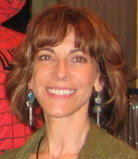I have been looking for an article about Trinidad Sanchez, Jr. that would do justice to his work -- not just his poetry, but his dedication to teaching poetry, especially to the young and/or disaffected or marginalized. I found this wonderful piece in the Denver Post.
"Trino's" poems gave color to life
By Claire Martin
Denver Post Staff Writer
August 5, 2006
Trinidad Sánchez Jr. wrote popular poems and worked with young offenders and prison inmates.
Chicano poet and activist Trinidad "Trino" V. Sanchez Jr., who died July 30 at age 63 in San Antonio, was renowned for the hip, socially astute writing that galvanized audiences in venues including the Taza Cafe he owned with his wife near downtown Denver.
Sanchez's seminal "Why Am I So Brown?" and other popular, provocative poems inspired younger generations of poets. The poem's title is a question asked by a Chicana elementary schoolgirl in one of Sanchez's writing classes. She was among countless children who knew Sanchez through artist-in-residence programs and other venues.
The poem is his response to her query. An excerpt: "Understand ... brown/ is not a color ... it is: a state of being/a very human texture/alive and full of song."
"When I think about Trino's legacy, I think about all the children and young people he taught," said Maurice Ka, a Denver poet and spoken-word artist who performs as El Negro.
Sanchez was the ninth of 10 children born in Pontiac, Mich., to poet and pool hall owner Trinidad Sanchez Sr., and Sofia Sanchez. Throughout his childhood and adolescence, he yearned for hugs and encouragement from his father, who rarely displayed affection.
Trinidad Sanchez Sr. spent 12-hour days running his pool hall. At home, he holed up with his manual typewriter, writing poems. When Trinidad Jr. left home at age 19, his father wrote "To Trino," a poem that began:
"When you feel lonesome and blue,
Count all the stars in the sky.
It is the times we think of you
Since the day you said 'Good-bye."'
At the time, Trinidad Sanchez Jr. dismissed the poem. He left home and eventually joined a Jesuit monastery in Detroit, where he worked with young offenders and prison inmates. He had a special affinity for Chicanos and African-Americans, many of whom had discordant relationships with their own fathers.
When he was 39, Sanchez reread "To Trino." The final lines leapt out at him - "Don't fear the storm, in the brink/Or the high winds in the night/It is Papa, who took a drink/And wanted to hug you tight."
Sanchez finally recognized the poem as the expression of the love his father never expressed aloud or with hugs. He included "To Trino" in "Poems by Father and Son," his 1991 anthology of his own work, and his father's.
By then, he was writing poems too, many of them published in journals and anthologies. After 27 years as a Jesuit monk, he left the order but remained active in prison ministry. Sanchez used poetry as a medium for emotionally constrained men and included writing in his men's workshops and community outreach groups.
He became a schoolteacher. He led creative writing classes in Michigan and Texas and worked with the developmentally disabled as well as conventional students.
Between the late 1990s and 2003, when Sanchez lived in Denver, he worked with young fathers through Family Star's Montessori and Early Head Start and other programs. Social services workers from Colorado to New York knew Sanchez as an exceptionally successful mentor for disaffected young fathers.
He led workshops urging them to express their love for their children. In a 2000 Denver Post article, Sanchez lamented that of Family Star's 75 fathers, only 38 were listed as an involved parent.
Sanchez proved more artist than businessman. Cafe Taza, the Platte Street coffee shop designed to showcase spoken-word performances, closed in 2003, about a year after Sanchez and his wife, Regina Chavez y Sanchez, opened it.
Young poets and spoken-word artists sympathized. Their support for Sanchez continued after he and his wife moved back to San Antonio, shortly afterward.
When Sanchez suffered two strokes last month, Colorado poets and performance artists promptly rallied to hold fundraisers to pay for daunting hospital bills. It was one way, Ka said, to repay the man who was mentor and confidant for so many.
Along with poet Day Acoli and other Sanchez admirers, Ka is organizing a memorial tribute this weekend at the Aurora Black Arts Festival, 9900 E. Colfax Ave. Organizers named the festival marketplace after the poet and established a community altar where mourners can leave candles, letters, poems and other ephemera.
Survivors include wife Regina Chavez y Sanchez of San Antonio.


No comments:
Post a Comment